Introduction: A Well-Organized Closet Isn’t Impossible
A disorganized closet can be one of the most frustrating parts of daily life. If you find yourself searching for that one item of clothing, digging through piles, or struggling to make sense of your storage, you’re not alone. Whether your closet is overflowing or seems organized but still doesn’t function well, common organizational mistakes could be the problem. The good news is that with a few key adjustments, you can transform your closet into a functional, tidy, and visually pleasing space. This article covers 10 frequent closet organization mistakes and, more importantly, how to fix them for good.
Mistake 1: Throwing Everything Out and Starting Fresh
Many people believe that organizing a closet requires getting rid of everything and starting from scratch. This misconception can lead to unnecessary stress, as there’s often no need to completely overhaul your closet.
The Fix: Keep What Works with a Smart Disposal System
Instead of tossing everything, keep what you use and love. Set up a donation bin in your closet to easily drop items that no longer serve you. This slow approach allows for more mindful decluttering over time. You don’t need a giant overhaul to feel organized—just an ongoing process of trimming down.
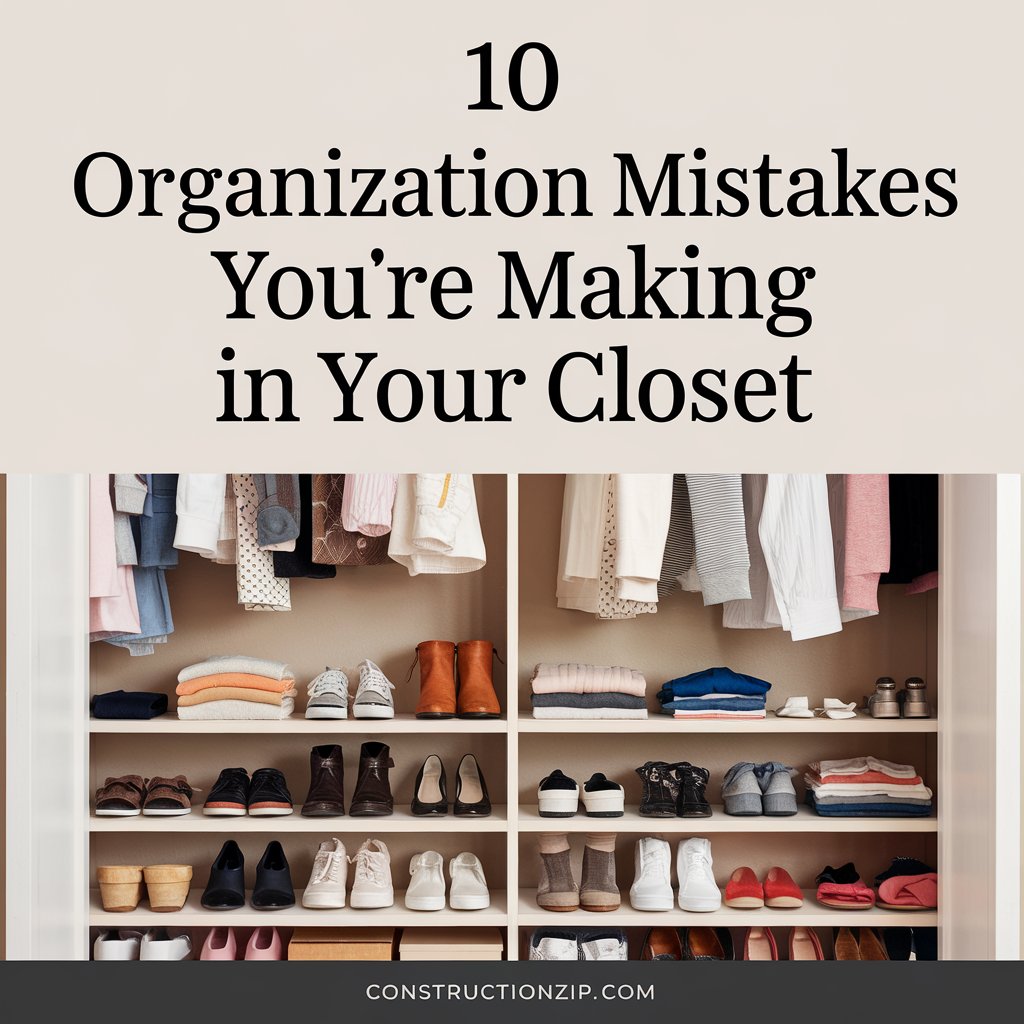
Mistake 2: Rushing to Buy Storage Bins and Organizers
It’s tempting to hit the store and buy all the cute baskets and storage bins, but buying before you evaluate your space can actually reduce your ability to organize.
The Fix: Take Stock of What You Already Have
Before purchasing new storage solutions, take time to assess what you own. Do you really need that extra bin, or could something already in your home work better? Once you’ve determined the essentials, only then invest in products that match the dimensions and specific needs of your closet. A well-planned approach ensures that everything fits perfectly and nothing takes up unnecessary space.
Mistake 3: Trying to Organize Everything at Once
Overwhelm is a common side effect of tackling your entire closet at once. With clothes, accessories, and seasonal items all vying for attention, it’s easy to feel defeated before you even begin.
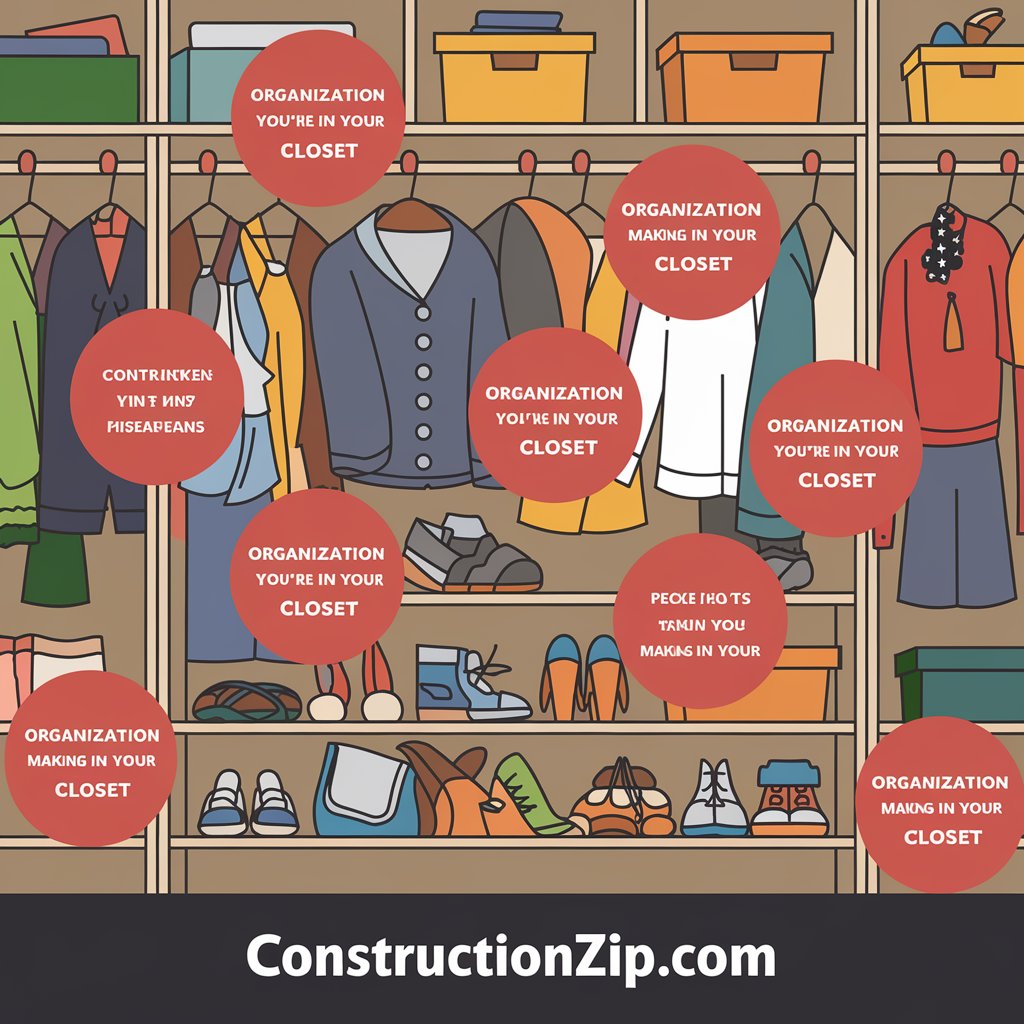
The Fix: Break It Down into Smaller Tasks
Take your closet organization in small, manageable steps. Focus on one section—such as hanging clothes, shoes, or accessories—and complete it before moving on. Breaking the project into bite-sized pieces makes the task less daunting and easier to maintain.
Mistake 4: Leaving Clothes Vulnerable to Damage
Not all clothing should be treated equally. Folding or hanging clothes incorrectly can lead to damage, such as wrinkles or moth infestations.
The Fix: Store Items Based on Material and Needs
Consider the type of fabric and the garment’s structure before deciding whether to fold or hang it. For example, delicate silk blouses should be hung to avoid creases, while heavy sweaters should be folded to prevent stretching. Understanding the needs of different materials will extend the life of your clothing.
Mistake 5: Neglecting Wall Space
Often, people assume closets are limited to shelves, drawers, and hanging rods. This mindset leaves valuable wall space underutilized.
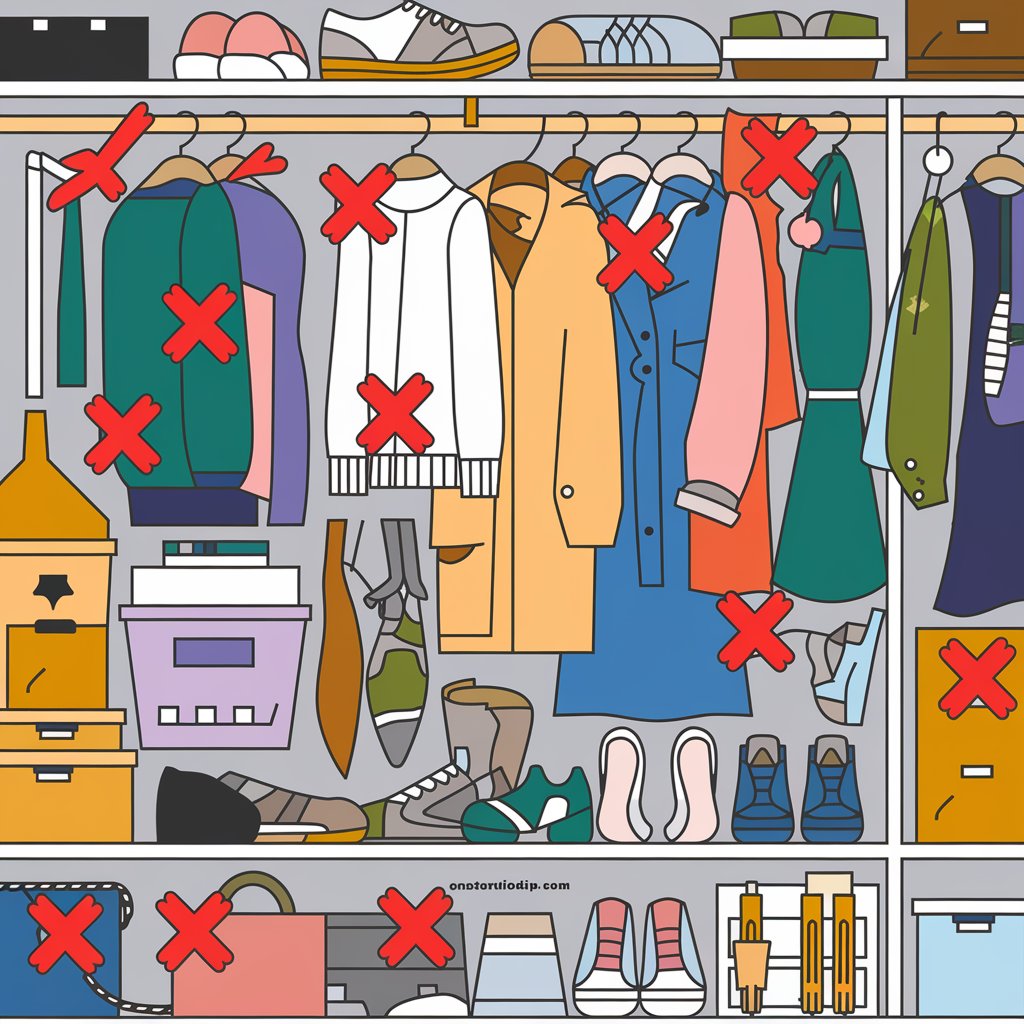
The Fix: Get Creative with Hanging Solutions
Hooks, adhesive organizers, and shelves can turn unused walls into extra storage. Hanging items such as scarves, belts, or even shoes on walls can free up shelf space and make your closet look visually pleasing and organized.
Mistake 6: Baskets Without Labels
While baskets may look stylish, they can often lead to out-of-sight, out-of-mind syndrome, where items are forgotten and neglected.
The Fix: Use Labels and Ensure Visibility
Clear bins or labeled baskets help maintain order by reminding you of what’s inside. Additionally, using uniform hangers can make your clothes easier to browse through. Maintaining visibility helps ensure that everything gets used and nothing is overlooked.
Mistake 7: Treating Your Closet as Static
It’s easy to fall into the trap of thinking that once your closet is organized, it’s done for good. However, seasons change, and so should your closet’s setup.
The Fix: Rotate Seasonal Clothing
Regularly swap out seasonal clothing, storing off-season items out of the way to make room for current wardrobe pieces. This will help free up space and keep your closet relevant to your everyday needs.
Mistake 8: Storing Shoes on the Floor
Placing shoes directly on the closet floor may seem like an efficient use of space, but it can quickly turn into a cluttered mess, especially if they’re organized solely by color or style.
The Fix: Use Vertical Storage and Smart Categorization
Instead of lining shoes along the floor, use vertical storage options like shoe racks or shelves. Stacking sandals and flats can save valuable space. Consider organizing shoes by category (e.g., heels, sneakers, boots) before arranging them by color, as this method is both functional and aesthetically pleasing.
Mistake 9: Low-Hanging Items at Eye Level
Many people arrange their closets by matching where the item is worn on the body—shirts up high, pants below. While this might seem logical, it can make your closet feel crowded.
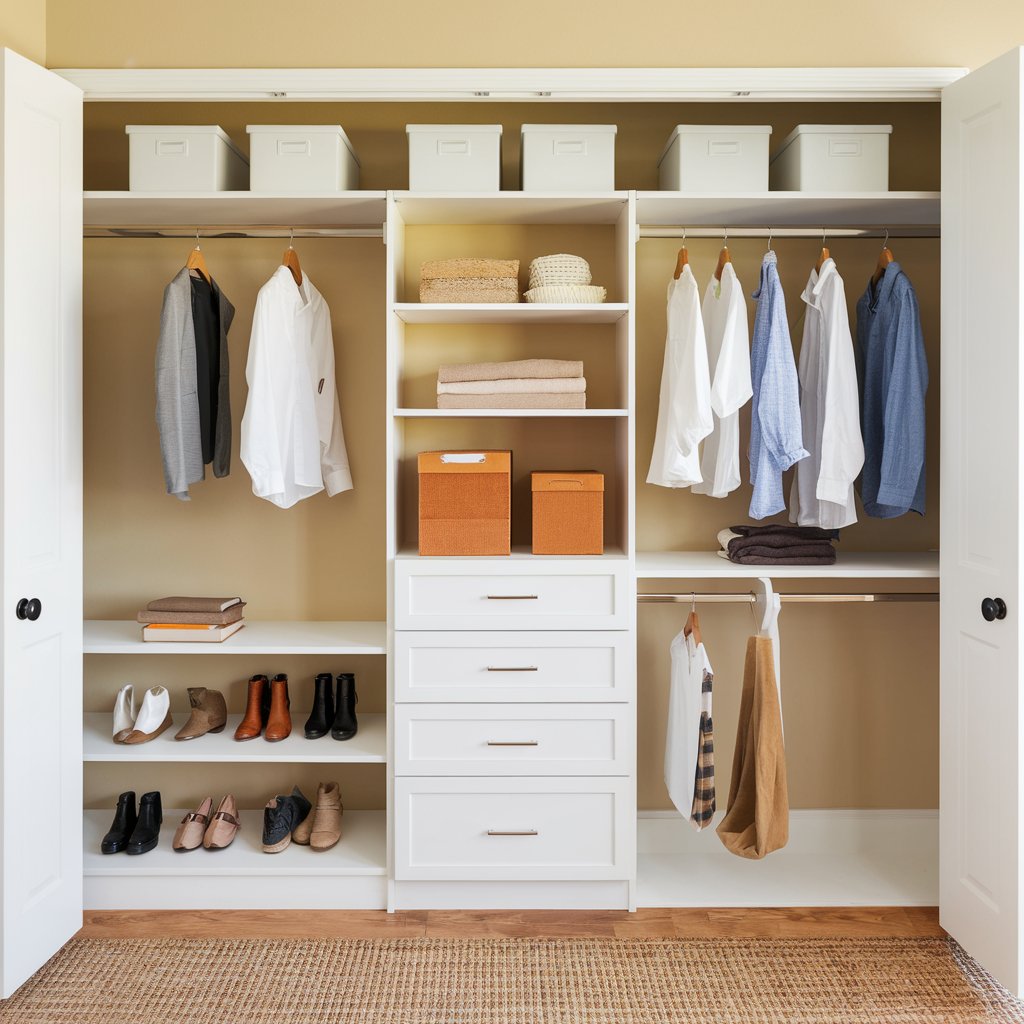
The Fix: Move Slimmer Items Up High
Place slimmer clothing items, like pants and skirts, at eye level, while bulkier sweaters and coats should go on lower shelves. This shift in placement creates the illusion of more space and reduces the visual clutter at eye level.
Mistake 10: Shelves That Are Too Shallow or Tall
Shelves that are too shallow or too tall can lead to impractical storage, with items either falling off or being stacked too high.
The Fix: Stick to the Ideal Shelf Height
The optimal shelf height is between 14 to 16 inches, as this allows you to stack items efficiently while maintaining stability. Most storage bins are designed to fit within this height range, providing a tidy and practical solution.
Summary of Fixes in a Table
| Mistake | Solution |
|---|---|
| Throwing Everything Out | Keep what works and set up a donation system. |
| Rushing to Buy Storage | Take stock of what you have before buying new items. |
| Organizing All at Once | Break it into manageable steps for less overwhelm. |
| Vulnerable Clothes | Store based on fabric needs—hang or fold appropriately. |
| Underutilizing Wall Space | Add hooks, shelves, and other hanging solutions. |
| Unlabeled Baskets | Use clear bins or labels for visibility and easy access. |
| Static Closet Setup | Rotate seasonal items to keep the closet functional year-round. |
| Shoes on the Floor | Use vertical storage solutions like racks or shelves. |
| Low-Hanging Items | Move slim items to eye level for a more spacious feel. |
| Poorly Sized Shelves | Use 14- to 16-inch tall shelves for optimal storage. |
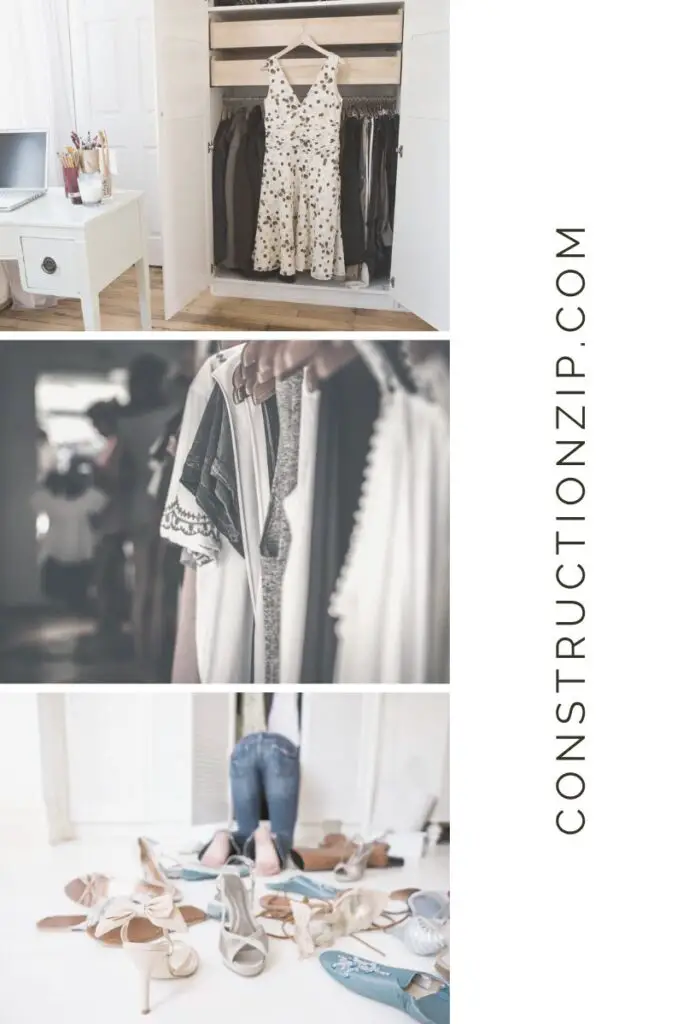
Conclusion: Create a Closet That Works for You
By avoiding these common organizational mistakes, you’ll be well on your way to a functional and beautifully organized closet. Whether you’re managing a small space or just need to maximize your current setup, small tweaks and a bit of creativity can make all the difference. Remember, organization is a process, not a one-time event. Keep evaluating your needs and adapting your closet accordingly, and you’ll always have a space that works for you.
With these tips, your closet will not only hold everything you need but will also be a space that makes you feel ready to tackle the day!